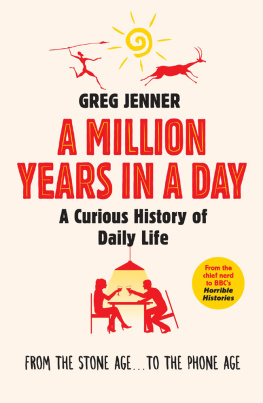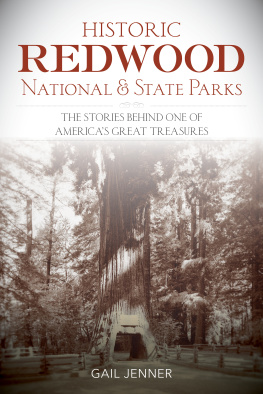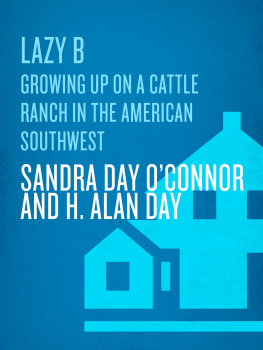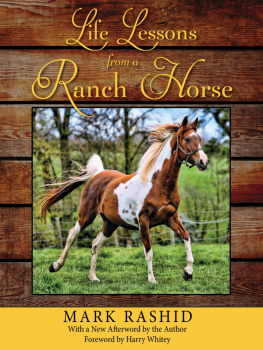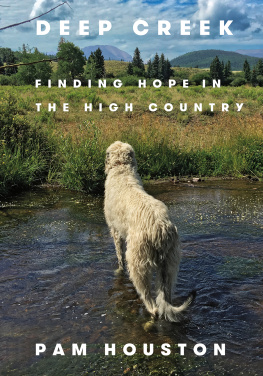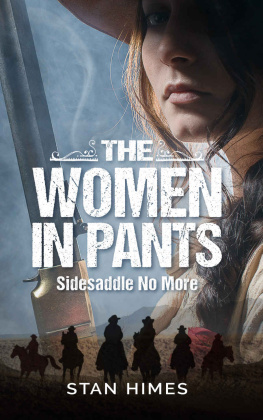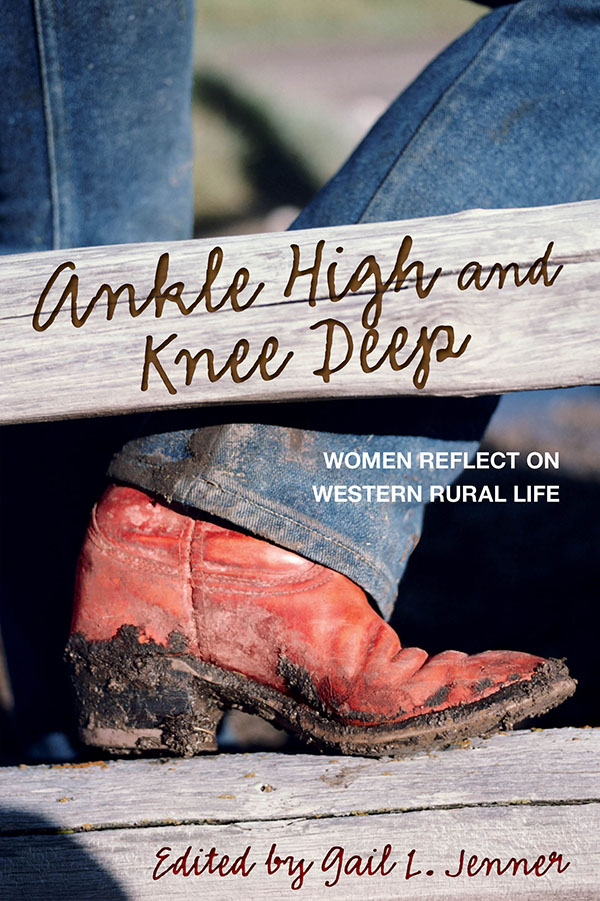Edited by Gail L. Jenner
Copyright 2014 by Gail L. Jenner
ALL RIGHTS RESERVED. No part of this book may be reproduced or transmitted in any form by any means, electronic or mechanical, including photocopying and recording, or by any information storage and retrieval system, except as may be expressly permitted in writing from the publisher. Requests for permission should be addressed to Globe Pequot Press, Attn: Rights and Permissions Department, PO Box 480, Guilford, CT 06437.
TwoDot is a registered trademark of Morris Book Publishing, LLC.
Project editor: Lauren Szalkiewicz
Layout artist: Chris Mongillo
Library of Congress Cataloging-in-Publication data is available on file.
eISBN 978-1-4930-1090-5
Contents
ACKNOWLEDGMENTS
This collection is the result of many womens efforts. I want to thank each of the contributors for her decision to allow me to develop an anthology of country women voices. I dont know all of you personally, but your words reveal the depth of your love for rural/farm life. This book is thus dedicated to every farming or ranching or country woman.
In addition, I wish to thank Erin Turner, our editor, for her enthusiasm and encouragement in refining the concept behind the book. Without her support this project would not have gotten out of the manure pile!
As many an old-timer has said, The best sermons are lived, not preached. I believe the thoughts and insights offered in this volume reveal the best kinds of sermons any of us can hear. May these stories speak to every readers heart.
INTRODUCTION
Farming seems easy when your plow is a pencil and you are a thousand miles from the corn field. Dwight Eisenhower
Life is all about the learning, and the family farm is a great schoolhouse. Ankle High and Knee Deep represents what forty-plus rural/farm women have learned while standing in or stepping out of mud, manure, and other offal. It is a collection of entertaining and inspirational essays that offers a unique perspective on love, marriage, parenting, relationships, loss, and other universal issues. These womens connections to the land and the people and animals in their lives are documented here.
Concepts that the general public has now adoptedlike sustainability and renewable/recyclable productscome to us directly from the life of a farmer or rancher. Working within a landscape that can change with the seasons or alongside the forces of nature that demand commitment and sacrifice develops deep character; interestingly, the word character comes from the Greek word meaning to chisel. That describes perfectly what living and working in an often harsh physical environment does to the human soul.
Several of the best lessons Ive learned have come from forty-two-plus years spent on our fifth-generation ranch:
- Sometimes the mud and muck get ankle deep, but they can always be washed off.
- Youve got to plant seeds before there will be anything worth harvesting.
- Waiting is time well spent. After winter comes spring; after spring rains comes the summer harvest.
- Everything is worth saving; sometimes its the odd piece of baling wire that keeps things from falling apart.
- Dont be in a hurry; thats when you run through fences or get stuck in ditches.
- Always watch out for the soft places; anything that looks that good has got to be dangerous.
- Dont ignore the rotten apples; they can destroy the entire barrelful if overlooked.
- Dont be afraid of hard work and sweat; theres nothing finer than a shower or warm fire after a day well spent.
- Love your job; its what you do, all day, every day.
- Just because a skunk is cute doesnt mean it wont stink!
- Dont look back; thats when you find yourself belly up in a low spot.
- Dont hold onto trouble; youve got to spread the manure around to make it effective fertilizer.
- Do things right the first time so you dont have to do them twice.
- Be willing to investnot only money, but sweat and time; in the end youll have something worth keeping.
- Out of the garbage heap grow the seeds you ignored.
- Good fences make good neighbors; know what peoples boundaries are and learn to respect them.
- To have a good garden, youve got to live in it; weeds take over quickly.
- Weaning time cant be ignored; theres a right time to let go.
- Most of the time theres no choice; success requires frequent sacrifice and persistence.
This is not a faith-based book, but this collection of essays does underscore traditional values while providing an ofttimes humorous look at life spent at the wrong end of a tractor, cow, or horse. Many reflect the lessons learned from a life centered around work, work, and more work. Trivial moments become significant moments of transitionrevealing that maybe the destination isnt as important as the road that leads there.
Maybe thats why farmers eventually become philosophers.
Fortitude
Everywhere in life, the true question is not what we gain, but what we do.
Thomas Carlyle
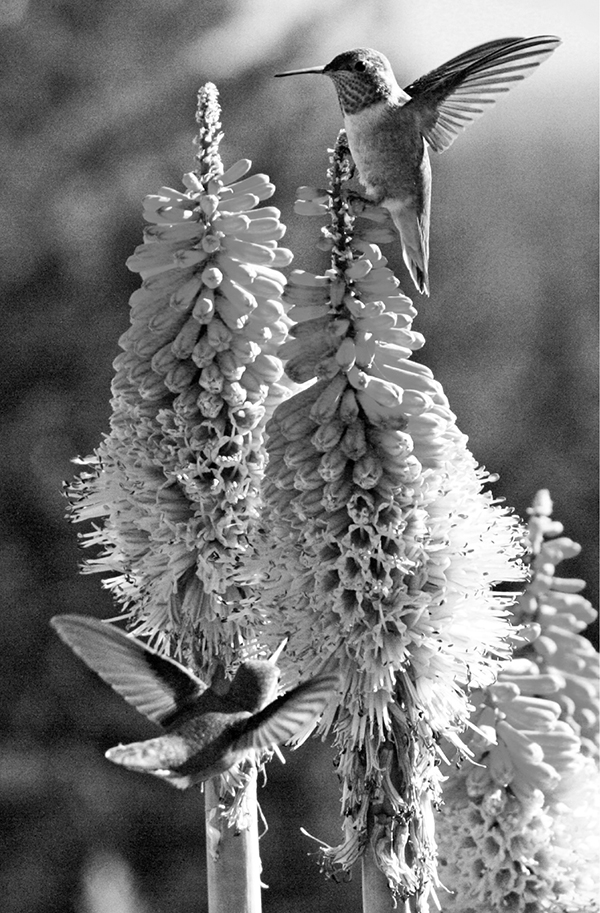
Rufous Hummingbirds of the Cascade Mountains of southern Oregon fight over Red Hot Pokers seen here. Courtesy of Rosalie More
Of Mud and Earth
Carol Pitts Maplesden
I remember playing in the dirt as a child in a gully near our home with a brother and sister. We made mud trails and roads, built earthen villages and farmsteads. And got ourselves very dirty.
Maybe that was why I chewed my fingernails and kept them very short.
Then one day there was a turning point. I decided I didnt want to play in the dirt anymore. My siblings were quite upset about it as I remember. And I stopped biting my fingernails.
Its not that I became a young lady overnight, but I began enjoying other things, such as helping my mother find wild greens for the table. One early spring we took a large pan and walked a good way up the valley, to a small grove, where we picked lush wild mustard along with enough lambs-quarter to tone the peppery greens taste down a bit. It was pleasant to be out with Mom all by myself. With a family of eight, there wasnt a lot of one-on-one time.
Daddy raised a garden in years when the creek ran enough for him to ditch water over to the flat a short distance from our house. He loved to grow watermelons, and there were the usual beans and corn and lots of potatoes.
You would have expected that we children would have been out there taking care of it, but I only remember helping plant a garden at another place where we lived for a time, which seemed huge. Ive seen the spot since I grew up, and it wasnt really as big as all that, but it was large enough to raise a patch of dry beans, several rows of corn, and enough potatoes to fill the pit behind our house, which was nothing more than an area with dirt scooped out and heavy planks leaned over it to come together in a peak. There was a door at one end, which provided access to the dark interior, where sacks and sacks of potatoes were dumped in a pile. That pile of potatoes served our family through the long winters. Outside dirt was pushed up over the planks to make the pit frost proof.


